 | |
| Founded | 1983 |
|---|---|
| Registration no. | 107449787 |
| Headquarters | 8345 Winston St. Burnaby B.C. Canada |
| Location | |
The Greater Vancouver Food Bank is a Canadian registered charity located in Vancouver, BC.
 | |
| Founded | 1983 |
|---|---|
| Registration no. | 107449787 |
| Headquarters | 8345 Winston St. Burnaby B.C. Canada |
| Location | |
The Greater Vancouver Food Bank is a Canadian registered charity located in Vancouver, BC.
The Greater Vancouver Food Bank (GVFB) was established in 1983 when organizations, church groups and concerned citizens joined together in response to the hunger crisis during the economic recession in 1981. The original purpose of the GVFB was to be a temporary social service provider. However, because the number of those at risk of hunger has continued to increase, the GVFB has become one of the most important non-government funded food assistance providers in Canada. In 1982, the GVFB assisted 200 people. Now, the GVFB is assisting over 16,000 individuals each month across Vancouver, Burnaby, New Westminster, and the North Shore.
In addition to supporting individuals and families experiencing food insecurity through direct distribution, they also provide food support to over 100 Community Agency Partners (CAPs). CAPs include housing agencies, women and children’s shelters and after-school programs who in turn provide groceries, hot meals and snacks to thousands of people, including those who are unhoused.[ citation needed ]

The World Food Programme (WFP) is an international organization within the United Nations that provides food assistance worldwide. It is the world's largest humanitarian organization and the leading provider of school meals. Founded in 1961, WFP is headquartered in Rome and has offices in 80 countries. As of 2021, it supported over 128 million people across more than 120 countries and territories.
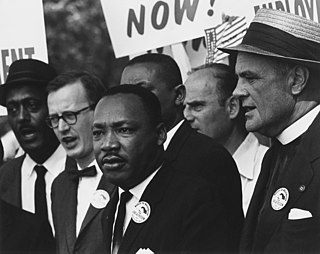
In politics, humanitarian aid, and the social sciences, hunger is defined as a condition in which a person does not have the physical or financial capability to eat sufficient food to meet basic nutritional needs for a sustained period. In the field of hunger relief, the term hunger is used in a sense that goes beyond the common desire for food that all humans experience, also known as an appetite. The most extreme form of hunger, when malnutrition is widespread, and when people have started dying of starvation through lack of access to sufficient, nutritious food, leads to a declaration of famine.

A soup kitchen, food kitchen, or meal center is a place where food is offered to the hungry usually for free or sometimes at a below-market price. Frequently located in lower-income neighborhoods, soup kitchens are often staffed by volunteer organizations, such as church or community groups. Soup kitchens sometimes obtain food from a food bank for free or at a low price, because they are considered a charity, which makes it easier for them to feed the many people who require their services.
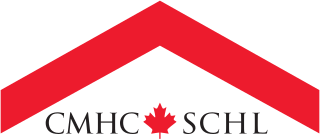
Canada Mortgage and Housing Corporation is Canada's federal crown corporation responsible for administering the National Housing Act, with the mandate to improve housing by living conditions in the country.
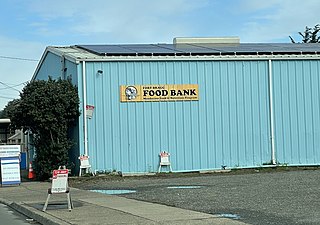
A food bank is a non-profit, charitable organization that distributes food to those who have difficulty purchasing enough to avoid hunger, usually through intermediaries like food pantries and soup kitchens. Some food banks distribute food directly with their food pantries.

Meals on Wheels is a program that delivers meals to individuals at home who are unable to purchase or prepare their own meals. The name is often used generically to refer to home-delivered meals programs, not all of which are actually named "Meals on Wheels". Many of the housebound recipients are the elderly, and many of the volunteers are also elderly but able-bodied and able to drive automobiles.
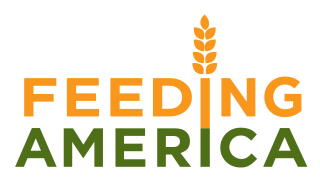
Feeding America is a United States–based nonprofit organization that is a nationwide network of more than 200 food banks that feed more than 46 million people through food pantries, soup kitchens, shelters, and other community-based agencies. Forbes ranks it as the largest U.S. charity by revenue. Feeding America was known as America's Second Harvest until August 31, 2008.
Church World Service (CWS) was founded in 1946 and is a cooperative ministry of 37 Christian denominations and communions, providing sustainable self-help, development, disaster relief, and refugee assistance around the world. The CWS mission is to eradicate hunger and poverty and to promote peace and justice at the national and international level through collaboration with partners abroad and in the US.
Haiti—an island country 600 miles off the coast of the U.S. state of Florida—shares the Caribbean island of Hispaniola with the Dominican Republic. Haiti has received billions in foreign assistance, yet persists as one of the poorest countries and has the lowest human development index in the Americas. There have been more than 15 natural disasters since 2001 including tropical storms, flooding, earthquakes and hurricanes. The international donor community classifies Haiti as a fragile state. Haiti is also considered a post-conflict state—one emerging from a recent coup d'état and civil war.
Taiwanese Canadians are Canadian citizens who carry full or partial ancestry from the East Asian island country of Taiwan or from preceding Taiwanese regimes. This includes Canadian-born Taiwanese (CBT).

Redwood Empire Food Bank (REFB) is a food bank on the North Coast of California which belongs to the Feeding America network. Its mission is to end hunger in its community.

HIV/AIDS was first detected in Canada in 1982. In 2018, there were approximately 62,050 people living with HIV/AIDS in Canada. It was estimated that 8,300 people were living with undiagnosed HIV in 2018. Mortality has decreased due to medical advances against HIV/AIDS, especially highly active antiretroviral therapy (HAART).
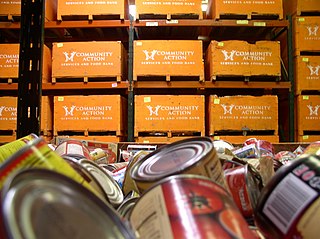
Community Action Services and Food Bank (CASFB), located in Provo, Utah, is a non-profit organization that serves the low-income population of Utah, Summit, and Wasatch counties and focuses on the operation of programs that help alleviate poverty. It was founded in 1967 following the signing of the Economic Opportunity Act in 1964 by President Lyndon B. Johnson and is one of more than 1,000 independent Community Action Agencies across the country. It is sponsored by United Way of Utah County.
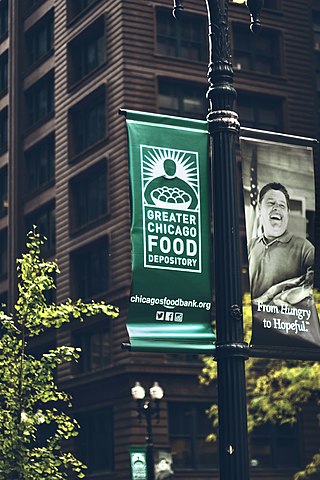
The Greater Chicago Food Depository (GCFD) is a nonprofit organization that fights hunger throughout Cook County, Illinois. The GCFD distributes donated and purchased food through a network of 700 food pantries, soup kitchens, shelters and community programs, serving more than 800,000 adults and children every year. In fiscal year 2016, the GCFD distributed more than 70 million pounds of nonperishable food, produce, dairy products, and meat - the equivalent of more than 160,000 meals every day. Of the $96,883,955 spent in 2016, over 90% went to direct food distribution programs.

Food Banks Canada is a charitable organization representing the food bank community across Canada. Founded in 1987, Food Banks Canada's network is made up of 10 Provincial Associations and over 500 local food banks. The organization's mission is to "enable an effective food bank community that addresses the short term need for food and longer term solutions to reduce hunger in Canada". It operates a number of programs such as the Hunger Awareness Week, HungerCount, a research report on food bank use in Canada, and a Safe Food Handling program for food banks.
Philabundance is a non-profit food bank that serves the Philadelphia and Delaware Valley region of Pennsylvania, United States. It is the largest such organization in the region.
Food Donation Connection (FDC), LLC is a privately owned American company that serves as a liaison between restaurants/food service companies interested in donating surplus food and local social service agencies that distribute food to people in need. FDC's objective is to redirect prepared food that would otherwise be discarded to help feed the hungry.

Hunger in the United States of America affects millions of Americans, including some who are middle class, or who are in households where all adults are in work. The United States produces far more food than it needs for domestic consumption—hunger within the U.S. is caused by some Americans having insufficient money to buy food for themselves or their families. Additional causes of hunger and food insecurity include neighborhood deprivation and agricultural policy. Hunger is addressed by a mix of public and private food aid provision. Public interventions include changes to agricultural policy, the construction of supermarkets in underserved neighborhoods, investment in transportation infrastructure, and the development of community gardens. Private aid is provided by food pantries, soup kitchens, food banks, and food rescue organizations.
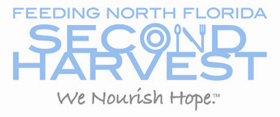
Second Harvest North Florida (SHNF) is a 501(c)(3) non-profit organization located in Jacksonville, Florida, that performs food rescue and redistribution to partner agencies in one quarter of Florida's 67 counties. The charitable organization has been active for over 30 years.
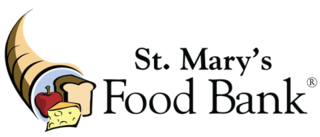
St. Mary's Food Bank Alliance is a nonprofit, nonsectarian organization located in Phoenix, Arizona. Founded in 1967 by John van Hengel, St. Mary's was the first modern organization to operate using the food bank model, which spread throughout U.S. and the rest of the world. Today, St. Mary's is recognized as the world's first food bank.